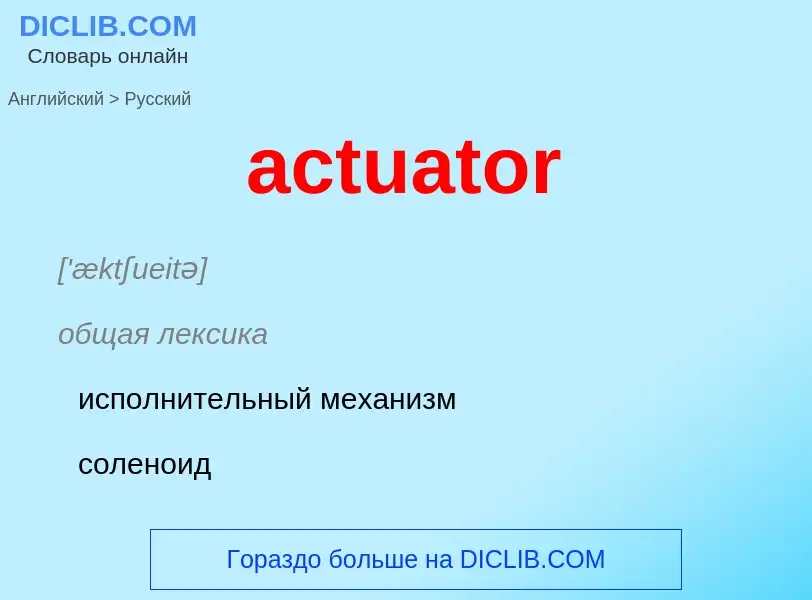Tradução e análise de palavras por inteligência artificial ChatGPT
Nesta página você pode obter uma análise detalhada de uma palavra ou frase, produzida usando a melhor tecnologia de inteligência artificial até o momento:
- como a palavra é usada
- frequência de uso
- é usado com mais frequência na fala oral ou escrita
- opções de tradução de palavras
- exemplos de uso (várias frases com tradução)
- etimologia
actuator - tradução para russo
['æktʃueitə]
общая лексика
исполнительный механизм
соленоид
привод (головок жёсткого диска)
в жёстких дисках - механизм, перемещающий головки чтения/записи в заданное место магнитной поверхности
профессионализм
актуатор
строительное дело
привод исполнительного органа, исполнительный механизм
серводвигатель
существительное
общая лексика
рукоятка привода
техника
(силовой) привод
пускатель
силовой привод
электротехника
соленоид
Wikipédia
An actuator is a component of a machine that is responsible for moving and controlling a mechanism or system, for example by opening a valve. In simple terms, it is a "mover".
An actuator requires a control device (controlled by control signal) and a source of energy. The control signal is relatively low energy and may be electric voltage or current, pneumatic, or hydraulic fluid pressure, or even human power. Its main energy source may be an electric current, hydraulic pressure, or pneumatic pressure. The control device is usually a valve. When it receives a control signal, an actuator responds by converting the source's energy into mechanical motion. In the electric, hydraulic, and pneumatic sense, it is a form of automation or automatic control.
The displacement achieved is commonly linear or rotational, as exemplified by linear motors and rotary motors, respectively. Rotary motion is more natural for small machines making large displacements. By means of a leadscrew, rotary motion can be adapted to function as a linear actuator (a linear motion, but not a linear motor).


